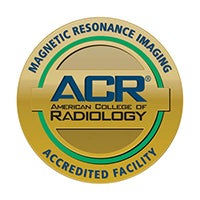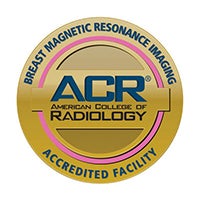Imaging
515-247-4444 | Find Location
MercyOne Imaging offers cutting-edge technology in diagnostic and preventative imaging.
We are dedicated to giving our patients the highest quality in imaging services available, offering 24/7 coverage, fellowship-trained radiologists, sub-specialty certified technologists, integrated PACS system, web tool for referring physicians and child life specialists.
With convenient locations, same-day scheduling and 24-hour report turnaround time, customers receive the premium care they deserve. Services include PET CT; 64 slice CT or CTA for cardiac imaging; 3T MRI and wide bore MRI for claustrophobic patients; ultrasound, nuclear medicine, mammography, fluoroscopy, DEXA bone density and interventional radiology.
Certification
American College of Radiology (ACR) Accredited sites:
- Ultrasound – MercyOne Des Moines Medical Center, MercyOne Ankeny Health Plaza, MercyOne Clive Health Plaza
- MRI – MercyOne Des Moines Medical Center, MercyOne Ankeny Health Plaza, MercyOne Clive Health Plaza, MercyOne West Des Moines Medical Center

Quick Facts
The radiologists and MercyOne Imaging staff provide the highest quality diagnostic and interventional imaging services in a caring and efficient manner while sustaining outstanding programs in research and education.
The imaging department is fully integrated with a filmless PACS system, voice recognition and all of the latest, state-of-the-art diagnostic imaging technology.
- Imaging performs nearly 250,000 exams per year
- Fifty-three percent of all patients seen at Mercy use imaging services
- Radiologists are all fellowship trained to become sub-specialists in their chosen field
- Imaging services are offered at multiple locations for customer convenience
- Sub-specialty certified technologists
Services At Each Location
MercyOne offers medical imaging locations in the Des Moines metro:
MercyOne Des Moines Medical Center
1111 6th Ave.
Des Moines, Iowa 50314
(515) 247-3130
- General radiography
- Fluoroscopy
- CT scan
- Nuclear medicine
- Ultrasound
- Interventional radiography
MercyOne Des Moines, East Tower
- General radiography
- CT scan
- MRI 1.5T wide bore
- 3T MRI
MercyOne Des Moines Medical Plaza
411 Laurel St.
Des Moines, Iowa 50314
Mammography—Suite 1265
- 3D and digital mammography
- Breast biopsy
Atrium Imaging—Suite A200
- CT scan
- PET CT
MercyOne West Des Moines Medical Center
1755 59th Place
West Des Moines, Iowa 50266
(515) 358-8250
- General radiography/Fluoroscopy
- MRI 1.5T wide bore
- CT scan
- Ultrasound
- PET/CT
800 East First St., Suite 1100
Ankeny, Iowa 50021
(515) 643-7676
Hours: Monday - 3D and digital screening mammography Friday, 7:30 a.m. - 4:30 p.m.
- 3D and digital screening mammography
- General radiography
- CT scan
- DEXA (bone density)
- Ultrasound
1601 NW 114th St., Suite 128
Clive, Iowa 50325
(515) 222-7550
Hours: Monday - Friday, 7:30 a.m. - 5 p.m.
- General radiography
- CT scan
- MRI 1.5 T Wide Bore
- Ultrasound
- 3D and digital mammography
- Breast ultrasound
- Breast biopsy
2006 N. 4th St., Suite 202B
Indianola, Iowa 50124
(515) 247-4444
Hours: Monday - Friday, 7 a.m. - 5 p.m.
- 3D and digital screening mammography
- DEXA (bone density)
- Ultrasound
Interventional Radiology
Interventional radiology is a rapidly growing area of medicine. Interventional radiologists are physicians who specialize in minimally invasive, specialized or targeted treatments performed using imaging guidance. The procedures are generally easier on the patient as they are minimally invasive. Most of the time, IR is less costly than surgical procedures and reduces recovery time or length of stay.
Some of the procedures that are performed in the Interventional Radiology lab:
- Angiography and balloon angioplasty
- Central venous access
- Gastrostomy tube placement
- Hemodialysis access maintenance
- Needle biopsy
- Nephrostomy tube placement
- Thrombolysis
- Uterine fibroid embolization
CT Scans
CT scanning–sometimes called "CAT" scanning–is a non-invasive, painless medical test that helps physicians diagnose and treat medical conditions.
CT imaging uses special X-ray equipment to produce multiple images or pictures of the inside of the body and a computer to join them together in cross-sectional views of the area being studied. The images can then be examined on a computer monitor or printed.
CT scans of internal organs, bone, soft tissue and blood vessels provide greater clarity than conventional x-ray exams.
VCT 64 Slice CT Scanner
- Captures images of the heart and coronary arteries in seconds
- Capable of producing over 150 images per second
- Faster than conventional multi-slice scanners
- Whole body trauma scans in 10 seconds
- Faster scanning reduces motion and improves overall detail
Accreditation
MercyOne has been awarded a three-year term of accreditation in computed tomography (CT) as the result of a recent review by the American College of Radiology (ACR). CT scanning — sometimes called CAT scanning — is a noninvasive medical test that helps physicians diagnose and tailor treatments for various medical conditions.
The ACR gold seal of accreditation represents the highest level of image quality and patient safety. It is awarded only to facilities meeting ACR Practice Guidelines and Technical Standards after a peer-review evaluation by board-certified physicians and medical physicists who are experts in the field. Image quality, personnel qualifications, adequacy of facility equipment, quality control procedures, and quality assurance programs are assessed. The findings are reported to the ACR Committee on Accreditation, which subsequently provides the practice with a comprehensive report they can use for continuous practice improvement.
MRI Scans
Magnetic resonance imaging (MRI) uses radiofrequency waves and a strong magnetic field rather than x-rays to provide remarkably clear and detailed pictures of internal organs and tissues. The technique has proven very valuable for the diagnosis of a broad range of pathologic conditions in all parts of the body including cancer, heart and vascular disease, stroke and joint and musculoskeletal disorders. MRI requires specialized equipment and expertise and allows evaluation of some body structures that may not be as visible with other imaging methods.
3.0 Tesla MRI
- Magnetic field strength at 60,000 times greater than the Earth’s pull allows for superior image quality
- Scan time reduced for most MRI exams
- Enhanced software applications making MRI images clearer
- More advanced applications for neurovascular, cardiac and musculoskeletal
.7 Open MRI
- High field open magnet offering exceptional image quality
- Comfortable for claustrophobic patients
Accreditation
MercyOne has been awarded a three-year term of accreditation in magnetic resonance imaging (MRI) as the result of a recent review by the American College of Radiology (ACR). MRI is a noninvasive medical test that utilizes magnetic fields to produce anatomical images of internal body parts to help physicians diagnose and treat medical conditions.
The ACR gold seal of accreditation represents the highest level of image quality and patient safety. It is awarded only to facilities meeting ACR Practice Guidelines and Technical Standards after a peer-review evaluation by board-certified physicians and medical physicists who are experts in the field. Image quality, personnel qualifications, adequacy of facility equipment, quality control procedures, and quality assurance programs are assessed. The findings are reported to the ACR Committee on Accreditation, which subsequently provides the practice with a comprehensive report they can use for continuous practice improvement.
Nuclear Medicine
Nuclear medicine is a subspecialty within the field of radiology. It comprises diagnostic examinations that result in images of body anatomy and function. The images are developed based on the detection of energy emitted from a radioactive substance given to the patient, either intravenously or by mouth. Generally, radiation to the patient is similar to that resulting from standard x-ray examinations.
Nuclear medicine images can assist the physician in diagnosing diseases. Tumors, infection and other disorders can be detected by evaluating organ function. Specifically, nuclear medicine can be used to:
- Analyze kidney function
- Image blood flow and function of the heart
- Scan lungs for respiratory and blood-flow problems
- Identify blockage of the gallbladder
- Evaluate bones for fracture, infection, arthritis or tumor
- Determine the presence or spread of cancer
- Identify bleeding into the bowel
- Locate the presence of infection
- Measure thyroid function to detect an overactive or underactive thyroid
PET CT
There are tremendous advantages of having a combined PET CT:
- Earlier diagnosis due to the high quality images
- Chance of better outcome due to accurate staging and localization
- Ability to detect recurrence in its early stages
Ultrasound
Ultrasound imaging, also called ultrasound scanning or sonography, involves exposing part of the body to high-frequency sound waves to produce pictures of the inside of the body. Ultrasound exams do not use ionizing radiation (x-rays). Because ultrasound images are captured in real-time, they can show the structure and movement of the body's internal organs, as well as blood flowing through blood vessels.
Ultrasound is a useful way of examining many of the body's internal organs, including but not limited to the:
- Abdominal aorta and its major branches
- Liver
- Gallbladder
- Spleen
- Pancreas
- Kidneys
- Bladder
- Uterus, ovaries
- Breast
- Infant hips, spines, echoencephalography
- Thyroid and parathyroid glands
- Prostate
- Scrotum (testicles)
- Thyroid Biopsies
- Paracentesis
- Thoracentesis
Accreditation
MercyOne has been awarded a three-year term of accreditation in ultrasound as the result of an extensive review by the American College of Radiology (ACR). Ultrasound imaging, also known as sonography, uses high-frequency sound waves to produce images of internal body parts to help providers diagnose illness, injury, or other medical problems.
The ACR gold seal of accreditation represents the highest level of image quality and patient safety. It is awarded only to facilities meeting ACR Practice Guidelines and Technical Standards, following a peer-review evaluation by board-certified physicians and medical physicists who are experts in the field. Image quality, personnel qualifications, adequacy of facility equipment, quality control procedures, and quality assurance programs are assessed. The findings are reported to the ACR Committee on Accreditation, which subsequently provides the practice with a comprehensive report they can use for continuous practice improvement.
Y-90-Radioembolization
Y-90 or radioembolization is a minimally invasive procedure that combines embolization and radiation therapy to treat liver cancer. Radiation therapy uses ionizing radiation to kill cancer cells and shrink tumors. Most people think of external beam therapy radiation, or the use of high-energy x-ray beams outside the body to treat tumors. But, radioembolization is different. It involves placing a radioactive material inside the body, directly to the tumor site.
Tiny glass or resin “beads” filled with the radioactive isotope Yttrium-90, or Y-90 are placed inside the blood vessels that feed a tumor. This blocks the supply of blood to the cancer cells and delivers a high dose of radiation to the tumor while sparing normal tissue. To learn more about this procedure, visit www.radiologyinfo.org.
